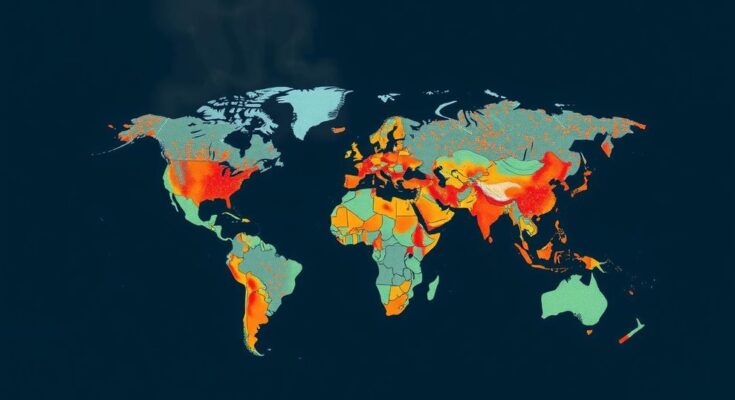Experts have issued a warning about the escalating health risks associated with climate change. The Lancet Countdown’s report highlights alarming records in health impacts due to climate disasters, particularly affecting the elderly and vulnerable populations. Despite some positive developments in pollution reduction and renewable energy use, urgent action is required to address the rise in climate-related health threats.
Climate change is inflicting unprecedented harm on global health, as highlighted in a recent report issued by the Lancet Countdown on health and climate change. The report, compiled by a panel of 122 experts from various health organizations, underscores alarming trends, with ten out of fifteen monitored indicators reaching concerning new peaks. The insights were announced against the backdrop of extreme weather events, including heatwaves, hurricanes, droughts, and floods, which have intensified in 2023, predicted to be the hottest year on record. This report arrives just prior to significant discussions at the upcoming United Nations Cop29 talks in Azerbaijan, as well as a critical U.S. election that may influence climate policy. Among the troubling findings, the report indicates a staggering 167 percent increase in heat-related deaths among the elderly since the 1990s. Furthermore, the geographic range of mosquitoes has expanded, facilitating the spread of infectious diseases. For instance, 2022 saw a record number of over five million dengue cases worldwide. The destruction of about five percent of global tree cover from 2016 to 2022 has further compromised the Earth’s ability to absorb carbon emissions. Moreover, the report draws attention to the role of oil and gas industries in exacerbating climate change, citing a rise in global greenhouse gas emissions and fossil fuel production. In contrast, there are signs of hopeful progress; deaths from air pollution linked to fossil fuels have decreased, while the share of renewable energy in electricity generation has nearly doubled. Marina Romanello, executive director of the Lancet Countdown, asserts the urgency of immediate action, stating, “There is really no more time to waste” to avert a future fraught with peril. She advocates for personal actions to mitigate climate effects, including adopting a climate-friendly lifestyle and supporting environmentally conscious policies.
The article addresses the urgent and alarming impact of climate change on human health globally, as articulated in the eighth Lancet Countdown report. The analysis accentuates the increasing frequency of severe weather events attributed to climate change, which have directly influenced health outcomes. It situates this information within the context of broader discussions on climate policy, particularly relevant given the impending United Nations climate talks and ongoing political dialogues in the U.S. The report connects environmental degradation, including deforestation and greenhouse gas emissions, to public health crises, illustrating the intricate relationship between climate change and health.
In conclusion, the Lancet Countdown report stresses the critical state of global health in light of climate change, revealing record levels of threats to human well-being. Despite some progress in reducing fossil fuel-related pollution and increasing renewable energy adoption, the consensus among experts is that immediate and decisive action is essential to prevent further health crises. The message is clear: the time for action is now, as inaction will continue to cost lives.
Original Source: www.rfi.fr




